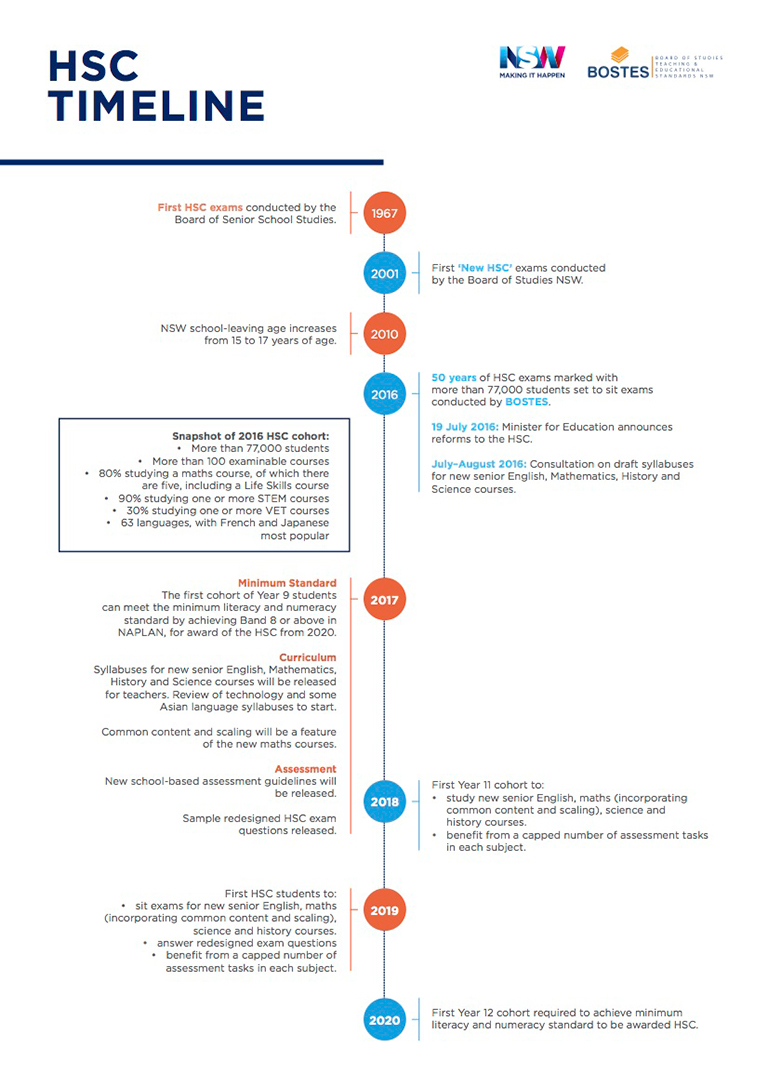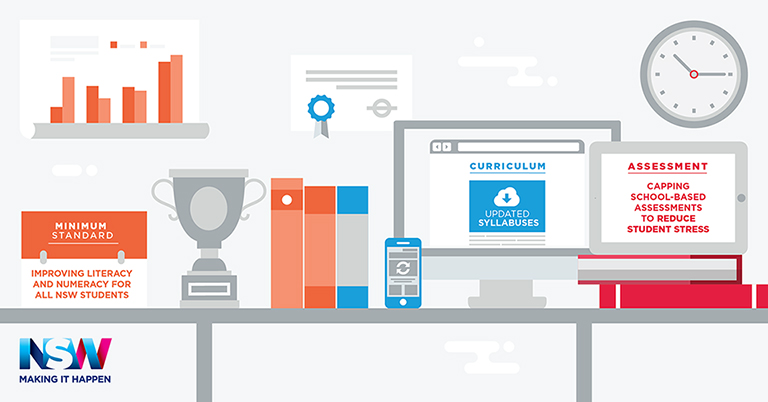Past developments
At the turn of the century the "New" HSC was launched with some modifications and some subjects
not changing very much (eg
Mathematics, my own
subject area). Some subjects saw considerable change, such as the reduction of
'3 Unit' options in many subjects and a shift away from the mathematical basis
in some sciences to a more philosophical approach, which the aim of increasing
the participation of girls in the sciences. Students were given the freedom to
select from the broad range of subjects, with English being the only compulsory
subject and not the humanities / sciences split that there was previously.
Adrian Piccoli, NSW Education Minister, notes that this last review was before smartphones, google and social media. A lot has changed in the landscape!
Current Changes
BOSTES has consulted
with many educational organisations regarding current pressures in the HSC to
try and improve what is already regarded as a strong, positive credential - the
HSC. Below is a snapshot of the key changes:
Impacts Year 9 2017
1. Minimum Standard
There will be a
minimum standard in Literacy and Numeracy, which can be gained as a Band 8 at
Year 9 in NAPLAN or by completing an online test after Year 9. (This may
include a unit of literacy or numeracy in Stage 6 if not proficient).
Impacts Year 10 2017 (Year 9 2016)
2. Syllabus Review (Curriculum)
New syllabus
(incorporating Australian Curriculum) for English, Mathematics, Science and
History (to be taught in Y11 2018)
Regularly review
syllabus documents for Stage 6 courses on at least a 5-yearly basis. Publish
the syllabus documents as online documents within the framework of
syllabus.bos.nsw.edu.au.
Potential new
subjects of Philosophy and Psychology.
Introduction of a
Science Extension course (HSC from 2019)
Review of Extension
courses to focus on complex thinking (particularly English, I suggest)
3. Assessment
New guidelines and
rules around type, length style and number of tasks for internal assessments. 3
max in Y11 and 4 max in Y12 (possibility of completing one HSC task in Y11).
The aim of this is to reduce stress and anxiety amongst students. It will of course
increase the weighting of each task (e.g. Y11 could have 1x40%, 2x30% tasks).
Time will tell if this aim is achieved.
Internal assessment
tasks will have to be in varied form (eg speeches, presentations, projects,
in-class problem solving, etc) which has been encouraged in the past, but may
be more prescriptive in nature. This is trying to change the practice common in
schools of using internal assessment tasks to practice for 'the real thing' of
the HSC Examination in Term 4. Given that scaling of internal marks will (as
far as I can see) still be linked to HSC Examinations, this will not remove the
incentive for schools to try and continue this practice.
Redesign of HSC
examination questions to focus on depth and reduce the opportunity for
pre-prepared or plagiarised answers (not sure how they hope to achieve this)
Research ongoing
about the incorporation of online assessment.
Apply a common scale
for comparing the Mathematics courses, to reduce the incentive for students to
maximise their ATAR by selecting General Mathematics 2, when they would be
better suited to a calculus-based course.





